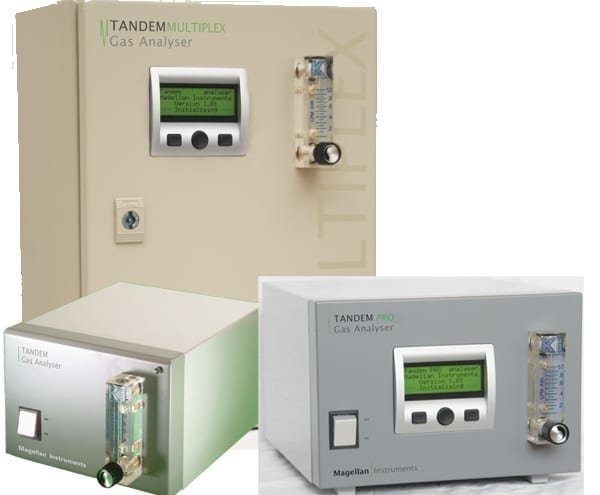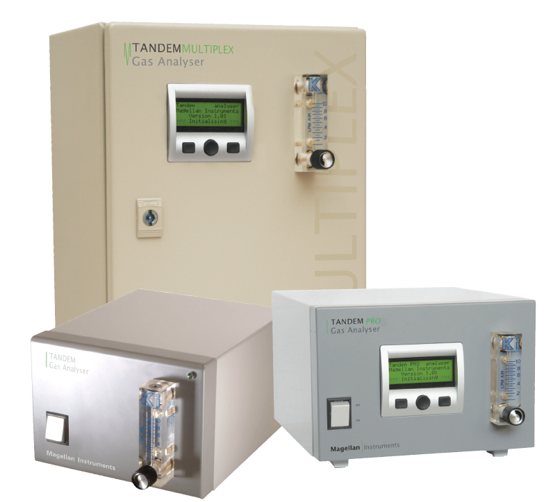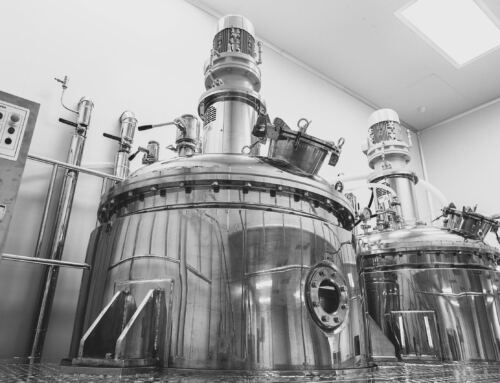Contents
Case study 1: Growth of Escherichia coli on a succession of substrates
Case study 2: Prediction of metabolic events with a Tandem gas analyser
Tandem gas analysers – dedicated exhaust CO2 & O2 Gas Analysis
Greater understanding of your cells and processes
Introduction
Real-time, on-line analysis of exhaust CO2 and O2 from your fermentation process provide a wealth of information to help you understand and control your fermentation process.
Below are presented two case studies of the use of off the Tandem gas analyzer in fermentation process development.
Case study 1: Growth of Escherichia coli on a succession of substrates
The below graph shows the exhaust gas analysis of an E. coli fermentation that is being fed a succession of different substrates. The Tandem gas analyser provides fine detail on the real-time activity of the organism: the first switch in feed is clearly visible while RQ changes may reflect metabolic changes in carbon and nitrogen substrates. Automating the feed profiles from this information has optimised the process.
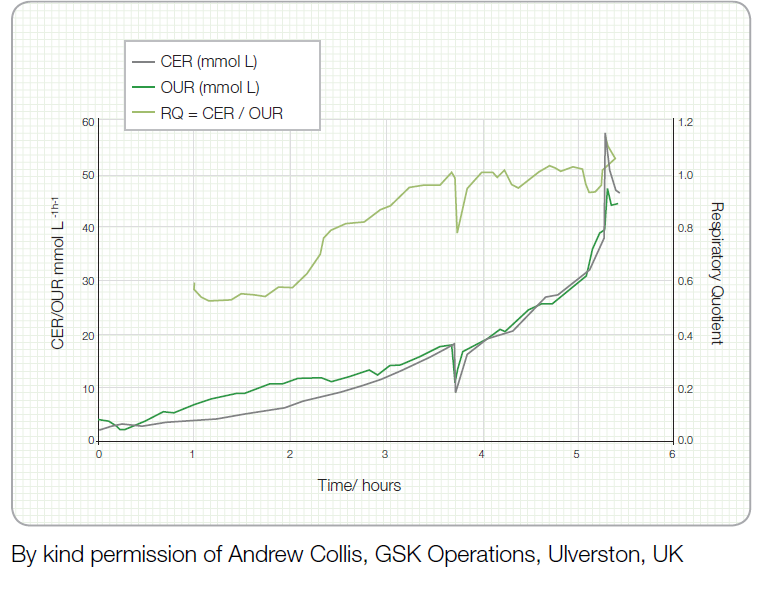
Case study 2: Prediction of metabolic events with a Tandem gas analyzer
The example below demonstrates how the Tandem gas analyser was used to determine the point of phosphate depletion. There is a sharp fall in carbon dioxide and a rise in oxygen, in the exhaust gas, corresponding to a metabolic event.
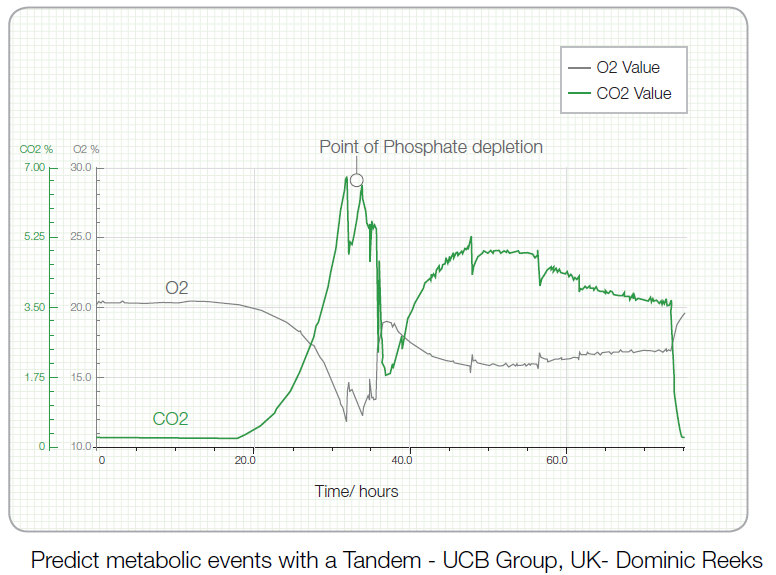
Tandem gas analyzers – dedicated exhaust CO2 & O2 Gas Analysis
The Tandem family of Gas Analysers offers you sophisticated CO2 and O2 gas measurement at a similar price to your other standard probes and sensors. Formerly the reserve of expensive equipment, you can now afford dedicated, individual, on-line monitoring and control of your processes. You gain the reliability and the flexibility required in your facility.
The Tandem Gas Analyzers provide portable systems with option of standalone software and integration into a wide range of systems, from different manufacturers.
Greater understanding of your cells and processes
- Physiological state measurement on-line
- Scale-up and scale-down predictions
- Batch variation studies: feature analysis
- Metabolic flux analysis and mass-balance calculations
- Accurate fed-batch control
- Metabolic activity based feeding
- Repeatable event decisions: induction, infection, harvesting etc.
- Dedicated, continuous, standard signals for all your reactors
- Automatic calculation of RQ, CER, OUR, and RQ
For more information on all our Tandem range of gas analyzers:
https://helgroup.com/products/bioreactors/tandem-gas-analysers/

